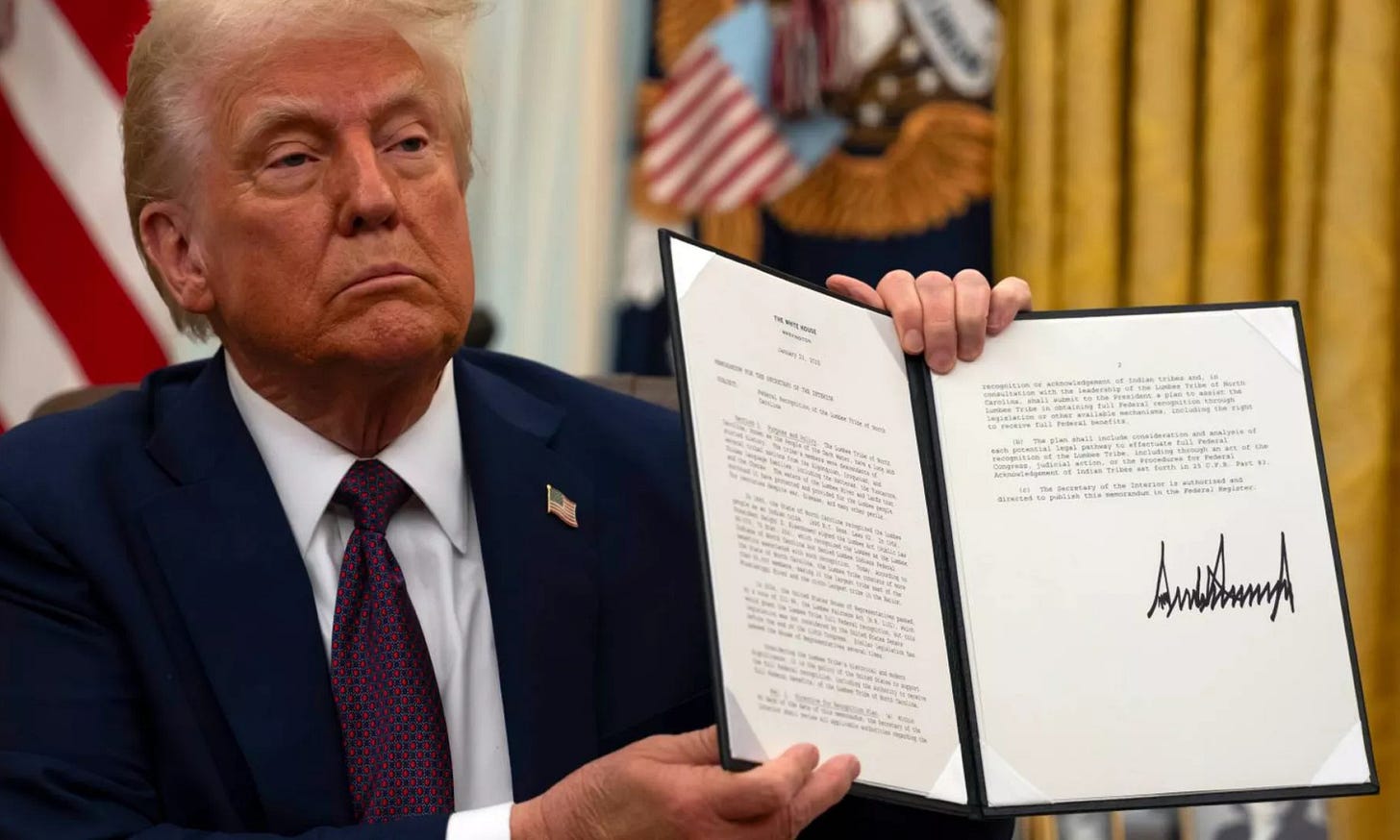Rewriting Citizenship?
Policy Overview
Policy Title: Executive Order 14160
Signed By: President Donald J. Trump
Date Signed: January 20, 2025
Key Provision: Denies automatic U.S. citizenship to children born in the United States unless at least one parent is a U.S. citizen or a lawful permanent resident
Legal Challenge Status: Blocked via nationwide injunction; currently under review by SCOTUS
On his first day back in office, President Trump signed Executive Order 14160, challenging the validity of the 14th Amendment’s Citizenship Clause. The order would deny birthright citizenship to children born in the U.S. to illegal or temporary residents. Trump’s position directly opposes the precedent set by United States v. Wong Kim Ark in 1898.
Legal Analysis
The constitutionality of the order remains highly debated, with supporters claiming that the framers' original intent was to grant citizenship to those who were in complete accordance with U.S. laws. Whereas those in opposition to the order cite precedent set by United States v. Wong Kim Ark to support the notion that all individuals born on U.S. soil, regardless of their parents' nationality or immigration status, are granted citizenship.
Federal courts imposed a nationwide injunction to stop the implementation of Executive Order 14160 due to violations of the 14th Amendment. Judges highlighted that such a foundational constitutional principle can not be struck down through executive order alone and has raised concerns over the separation of powers.
Implications and Potential Outcomes
If the Supreme Court upholds the executive order, it would set a new legal precedent allowing future administrations to alter citizenship standards by executive action. This would also lead to potential widespread legal uncertainty for the millions of U.S.-born individuals whose parents are undocumented or temporary residents.
However, if the Supreme Court decides that it is unconstitutional, then it confirms that the current interpretation of the Citizenship Clause is what the framers intended. It also may end up limiting the extent to which future executive actions can affect constitutional rights and protections.

